
#Anataban What Can Art Offer in The Fight Against Covid-19?
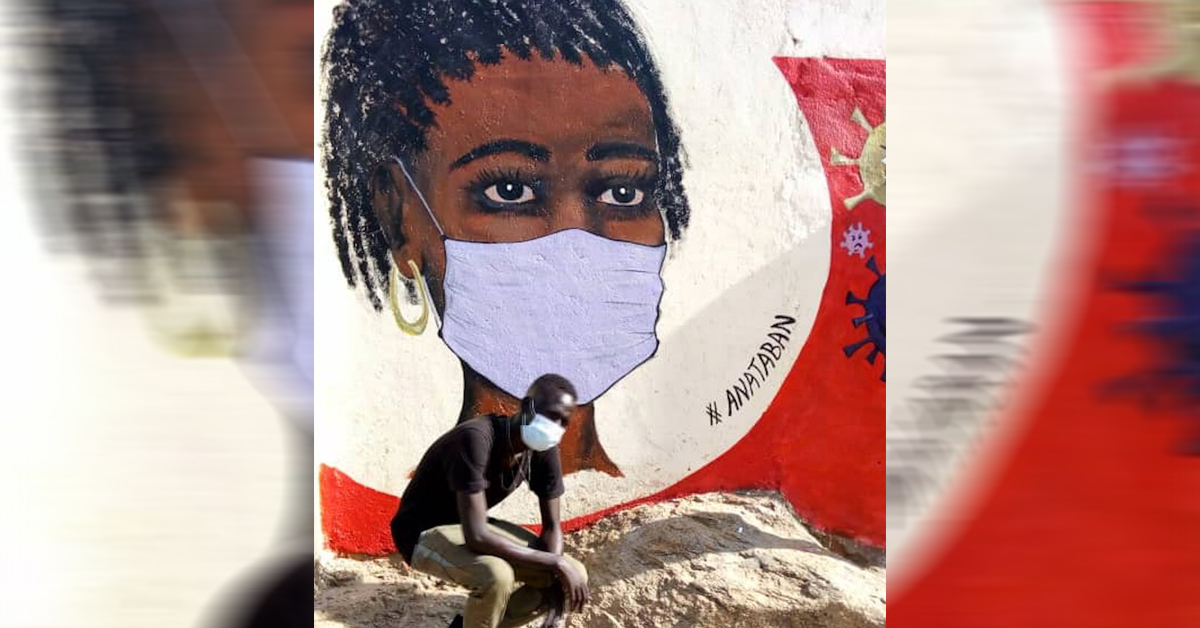
By Chimwemwe A. Fabiano
IN SUMMARY
• Art provides potent, unconventional and innovative pathways for raising awareness and mobilising concerted social action towards a common goal – to stop COVID-19.
• The COVID-19 storm has made it clear that effective societal mobilisation is contingent on mutual trust between the state and society.
• In order to gain and retain trust, governments should acquire two forms of legitimacy: the legitimacy that is gained through the conduct of free, fair and credible elections and the legitimacy that is gained through performance.
2 • The ability to effectively mobilise society to fight the spread of the COVID-19 pandemic is and will remain the ultimate test of leadership in crisis.
• It is not accidental that those governments whose legitimacy is disputed have tended to rely on the brazen use of force in their convoluted efforts to enforce COVID-19 responses.
There are three key governance factors and indicators that the COVID-19 pandemic has tested and highlighted, particularly in the African context. First, it has tested the capacity of governments to effectively influence and mobilize society towards a common good, particularly during crisis situations of a never-seen-before nature.
Second, it has tested the level of trust which societies have vested in their governments, particularly the willingness and capacity to protect citizens and to search for the common good.
And third, it has highlighted the interface between the legitimacy of political authority and its capacity to influence and mobilise societal response, particularly during seismic situations of crisis.
The COVID-19 storm has made it clear that effective societal mobilization is contingent on mutual trust between the state and society. This is because trust enables citizens to believe that their government has the good-will to work for the common good. It also motivates citizens to cooperate with their government when they are asked to observe measures that are intended to flatten the curve of COVID-19 such as lockdowns, physical distancing, self-isolation, and quarantine.
What South Sudan government should do to retain trust from the citizens?
In order to gain and retain trust, governments should acquire two forms of legitimacy: the legitimacy that is gained through the conduct of free, fair and credible elections and the legitimacy that is gained through performance, particularly in economic terms.
Legitimacy gives governments the 3 justification to exercise political authority, including to mobilise societal response to societal challenges. Governments whose power to govern is widely accepted by their citizens do not need to rely on the excessive use of force to make citizens comply with COVID19 regulations. It is therefore not accidental that those governments whose legitimacy is disputed have tended to rely on the brazen use of force in their convoluted efforts to enforce COVID-19 responses. This has witnessed the weaponisation of COVID-19.
This weaponisation has been characterised by the torture, beating, harassment, arbitrary arrests and detentions, abuse, maiming and killing of citizens by state security forces. In such contexts, citizens have to comply largely because of the fear of punishment instead of the belief that their government has the right to exercise political authority.
Certainly, effective societal mobilisation is not only a critical factor in efforts to contain the COVID-19 pandemic, but it is also a litmus test for leadership in crisis. What then can art offer in the fight against Covid-19, especially in those contexts where the capacity of the government to mobilise society is limited because of factors such as violent conflict, belligerent state-society relations and elusive legitimacy?
The answer is incisive: art offers the capacity to reach out to the wider community because of its ability to transcend boundaries – geographic, political, historic, social, ethnic, economic, cultural and demographic.
Art is more capable of mobilising society than governments which are not trusted by their citizens. This op-ed uses the case of South Sudan to highlight how art has generously provided these capabilities in the fight against the COVID-19 pandemic.
South Sudan has recently emerged from an armed conflict which lasted for almost a decade. Sadly, in spite of the peace agreement, hundreds of citizens continue to lose their lives and livelihoods on account of violent conflicts which a 4 member of parliament has blamed on the absence of state leadership.
The country also continues to experience challenges such as displacements, poor service delivery, economic stagnation and human rights abuses. With the government’s limited capacity to mobilise society because of these and other challenges, South Sudan’s fight against COVID-19 has been largely driven by civil society groups. It is in this context that Ana Taban is making use of the power of art to #WagifCorona; or simply “Stop Corona”.
Ana Taban, which means ‘I am tired’, is a community of young creatives who seek ‘to see an end to the suffering of the people of South Sudan’. As part of this goal, it is demonstrating the role and agency of art in the fight against Covid-19.
Across Africa, artists have produced works of art to raise awareness of COVID-19. For example, in Malawi, Artglo is running the #TipeweCorona Dance Challenge (Prevent Corona Dance Challenge). However, Ana Taban stands out because of the peculiarities of the South Sudanese context where, in February 2020, as COVID-19 swept across the world from its original epicentre in China, the country had just formed the Revitalised Transitional Government for National Unity as part of efforts to resolve the seven-year armed conflict.
The first positive COVID-19 case in South Sudan was announced on 5 April, 2020. Ana Taban quickly shared the announcement on its Facebook and Twitter pages, expressing the cast-iron commitment to mobilise society in the fight against COVID-19 in South Sudan.
The group demonstrated its resilience and dexterity in mobilising social action when it adapted and channelled its agency towards the fight against COVID-19. It uses artistic works to enable free thought, expression, speech and the exercise of individual and collective agency.
Its artivism emerged from the lived realities of the South Sudanese society; performed through music, graffiti, murals, street theatre, poetry and vibrant social media campaigns. 5 Ana Taban has painted murals in Juba and other areas to raise community awareness of COVID-19. It has asked citizens and business entities to donate wall spaces in order to paint educative murals so that passers-by in various communities can learn and take preventive measures against the virus.
It has presence in other states such as Yei, Wau, Yambio, Bor and Twic. The group is also using music, poetry and cartoons to sensitise society about the COVID-19 pandemic. It plans to conduct a live performance on Facebook to use music, spoken word and comedy to curb the spread of COVID-19. Ana Taban’s efforts demonstrate the agency of art in influencing and mobilising society to effectively respond to situations of crisis such as the COVID-19 pandemic.
Art provides potent, unconventional and innovative pathways for raising awareness and mobilising concerted social action towards a common goal – to stop COVID-19. From its inception, Ana Taban has demonstrated its ability to use art to advocate for and mobilise social action that resonates with the various communities of South Sudan, including the diaspora.
The group has a track record of engaging the communities of South Sudan (offline and online) with which it shares a relationship which is built on trust, shared goals, hopes and aspirations.
The mutuality that it enjoys and shares with these communities gives it the legitimacy to mobilise them towards a common good. Trust strongly shapes the success of societal mobilisation towards eradicating diseases and securing community health goals. It is a key factor in navigating historical and embedded social cleavages that may need to be confronted to overcome and address COVID-19.
In its policy brief on social mobilisation, the World Health Organization encouraged governments and other actors to engage and to form alliances across constituencies that have traditionally worked parallel to government so as to expand the space for all people to participate in meaningful ways.
The role of 6 artists, local influencers and opinion leaders in the fight against COVID-19 cannot be underestimated. It is unfortunate that groups such as Ana Taban are either disregarded or peripherally engaged by governments in their efforts to deal with societal challenges.
In some cases, such groups are routinely or systematically repressed by governments on grounds which are political. As a result, such societies are unable to optimally utilise the agency of such groups.
If the government of South Sudan is to strengthen its efforts to contain COVID-19, it is important that it works with Ana Taban and other artists in order to harness the legitimacy and trust that they have earned from the broader community.
The government should recognise and harvest the power of art in mobilising society to effectively respond to the COVID-19 crisis. The ability to effectively mobilise society to fight the spread of the pandemic is and will remain the ultimate test of leadership in crisis.
Chimwemwe A. Fabiano is a Malawian Peace and Security Fellow with the African Leadership Centre.
This report was first published on August 14, 2020 by the African Leadership Centre.

















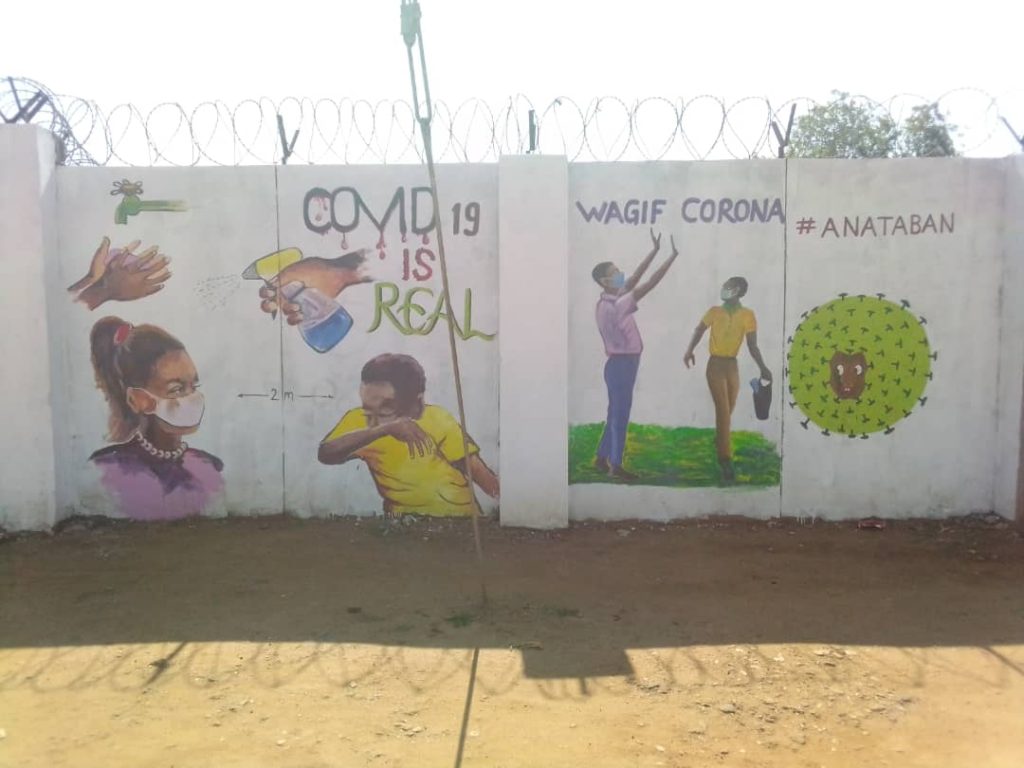
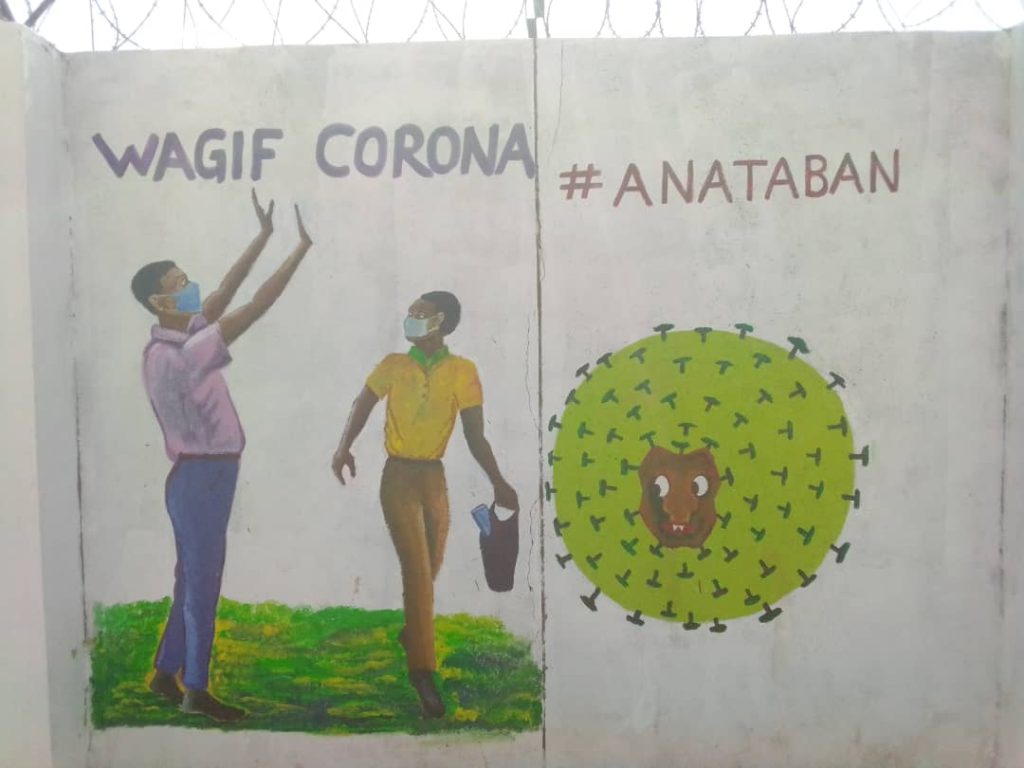
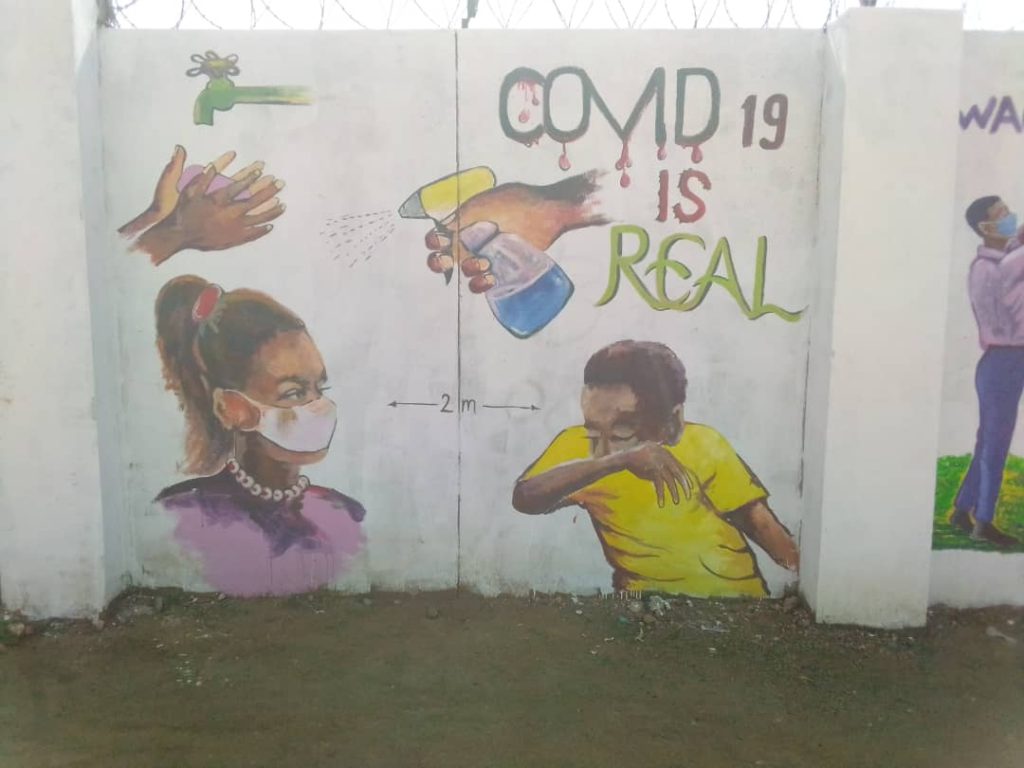
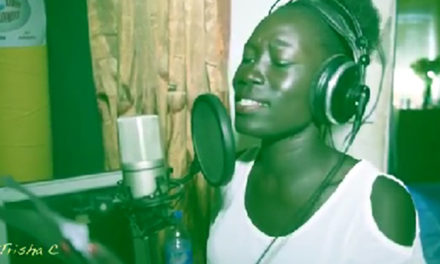
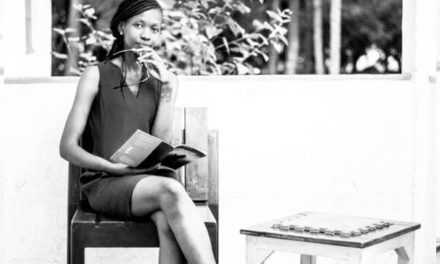
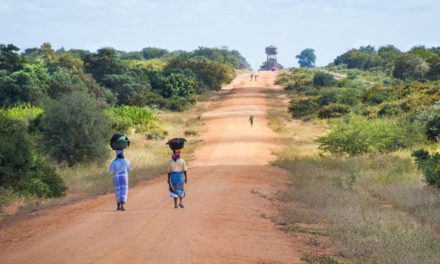
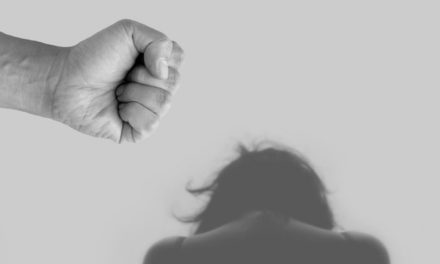
Recent Comments